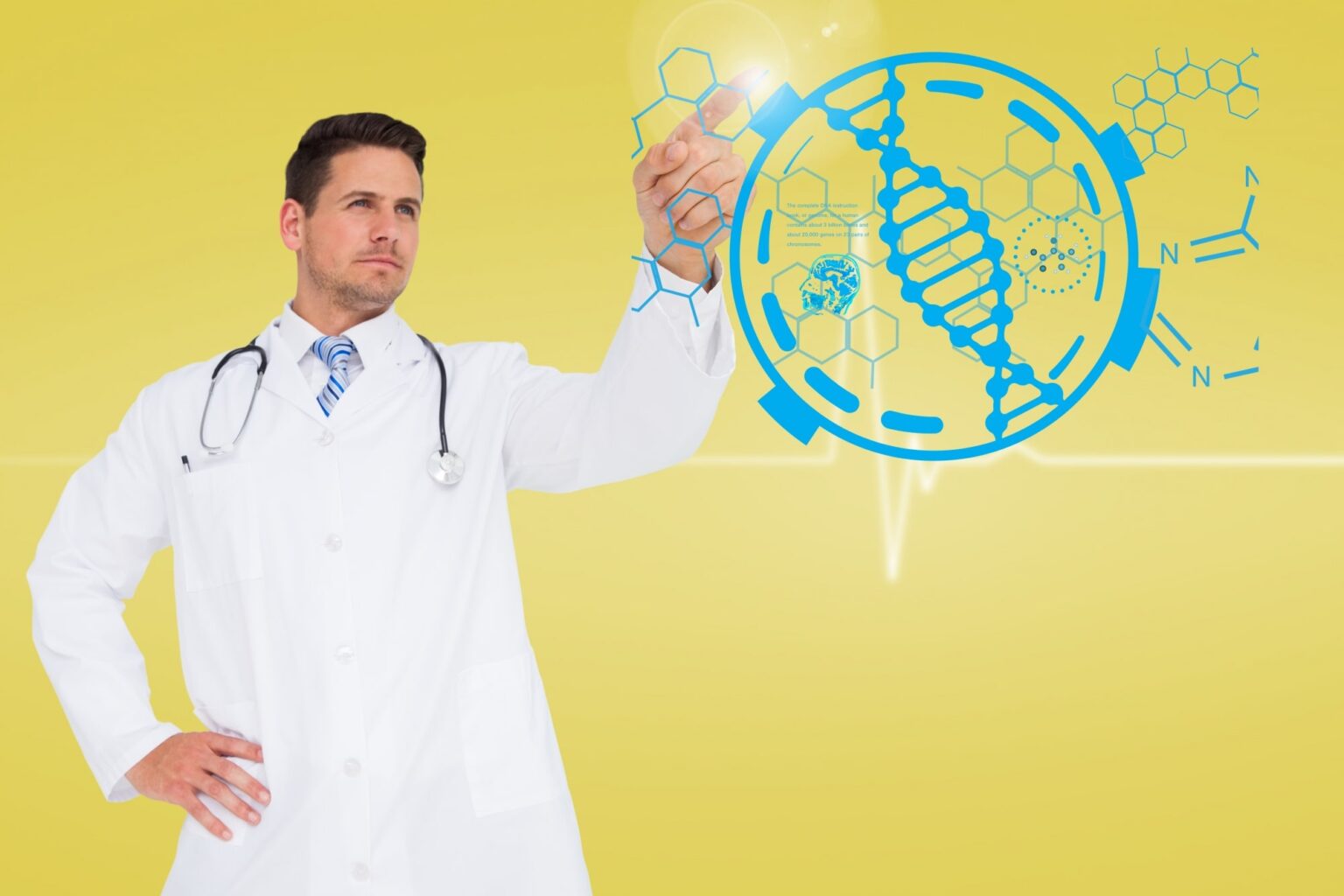Genomics and precision medicine are transforming the healthcare landscape by providing personalized approaches to diagnosis, treatment, and prevention of diseases. Here’s how genomics and precision medicine are revolutionizing healthcare:
- Genomic Sequencing: Genomics involves the study of an individual’s genetic material, specifically their DNA sequence. The advancements in DNA sequencing technologies have made it faster and more affordable to sequence an individual’s entire genome or specific portions of it. This allows healthcare professionals to identify genetic variations that may contribute to the development of diseases or affect an individual’s response to certain medications.
- Disease Risk Assessment: Genomic information can be used to assess an individual’s risk of developing certain diseases. By analyzing genetic markers associated with specific conditions, such as cancer, cardiovascular diseases, or neurological disorders, healthcare providers can identify individuals who may be at higher risk. This enables early interventions, such as increased surveillance, lifestyle modifications, or preventive treatments, to mitigate disease development.
- Targeted Therapies: Precision medicine utilizes genomic information to tailor treatment plans to an individual’s unique genetic makeup. By identifying specific genetic alterations or mutations driving a disease, healthcare providers can select targeted therapies that are more likely to be effective for that particular individual. This approach has shown remarkable success in treating various cancers, where specific genetic abnormalities can guide the use of targeted therapies, immunotherapies, or other personalized treatment options.
- Pharmacogenomics: Pharmacogenomics aims to optimize medication selection and dosing based on an individual’s genetic profile. By understanding how an individual’s genes influence drug metabolism and response, healthcare providers can choose medications and doses that are more likely to be effective and safe. This approach helps avoid adverse drug reactions, optimize treatment outcomes, and reduce trial-and-error in medication prescribing.
- New Drug Development: Genomics has played a crucial role in accelerating drug discovery and development. By understanding the genetic mechanisms underlying diseases, researchers can identify potential drug targets and develop more precise and effective therapies. Genomics also enables the identification of specific patient populations that are more likely to benefit from a particular drug, facilitating the development of targeted therapies.
- Prenatal Screening and Diagnosis: Genomic sequencing techniques have enhanced prenatal screening and diagnosis, allowing for the identification of genetic abnormalities in the developing fetus. Non-invasive prenatal testing (NIPT) analyzes cell-free fetal DNA in the mother’s blood to detect chromosomal abnormalities, such as Down syndrome. Invasive procedures like amniocentesis or chorionic villus sampling can be used for more comprehensive genomic analysis if needed. Early detection enables informed decision-making and personalized management for the pregnancy.
- Population Health Management: Genomic data, when aggregated and analyzed on a larger scale, can provide insights into population health trends, disease prevalence, and genetic risk factors within specific communities or ethnic groups. This information helps public health officials and policymakers develop targeted interventions, prevention strategies, and healthcare resource allocation.
While genomics and precision medicine hold immense promise, challenges remain. These include the need for robust data privacy and security measures, ethical considerations around genetic testing and counseling, equitable access to genomic technologies, and ensuring that healthcare professionals are adequately trained to interpret and apply genomic information in clinical practice.
As technology continues to advance and our understanding of the human genome expands, genomics and precision medicine will continue to drive personalized healthcare, leading to better patient outcomes, improved disease management, and a shift towards more proactive and preventive approaches to healthcare.



